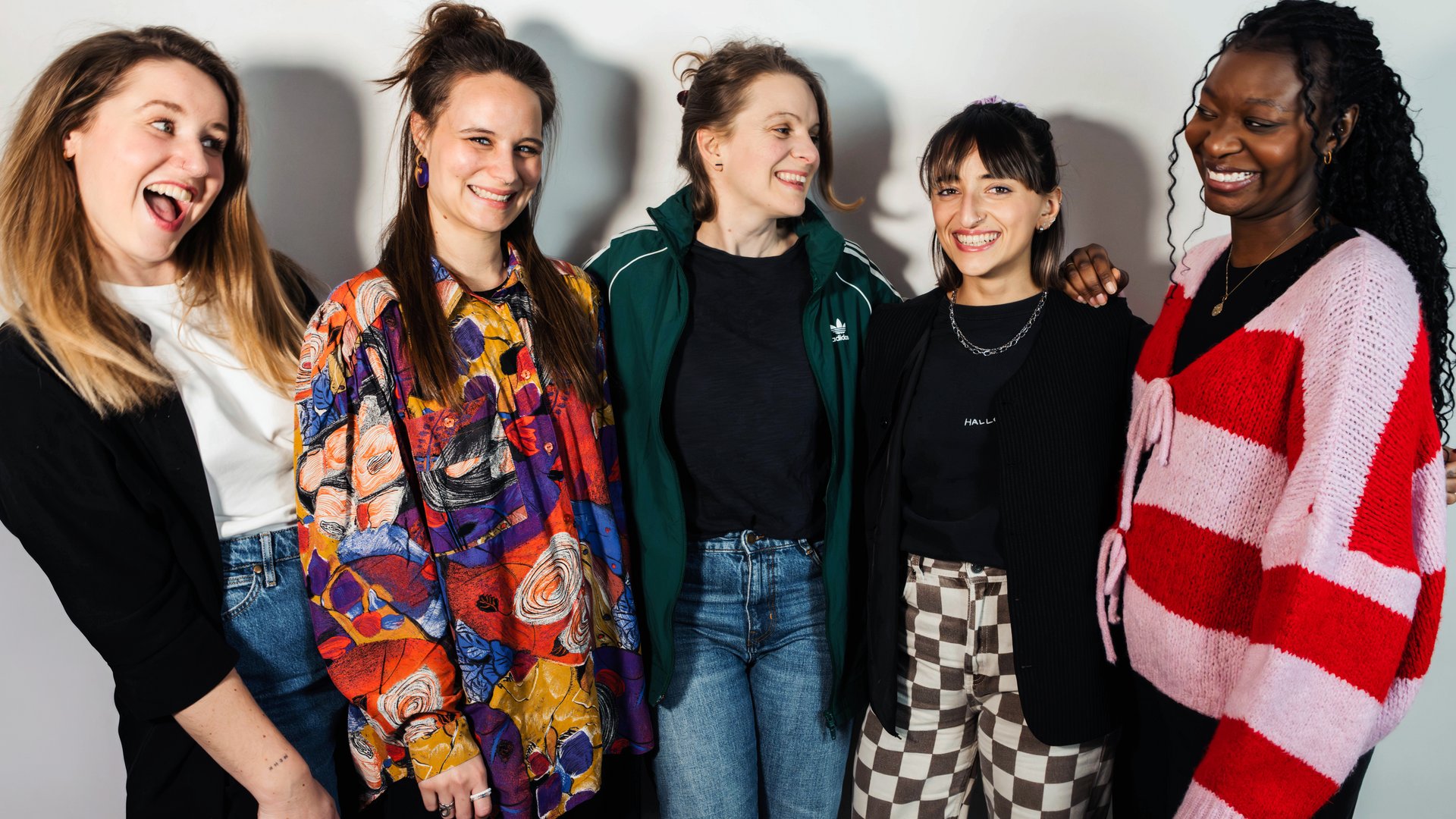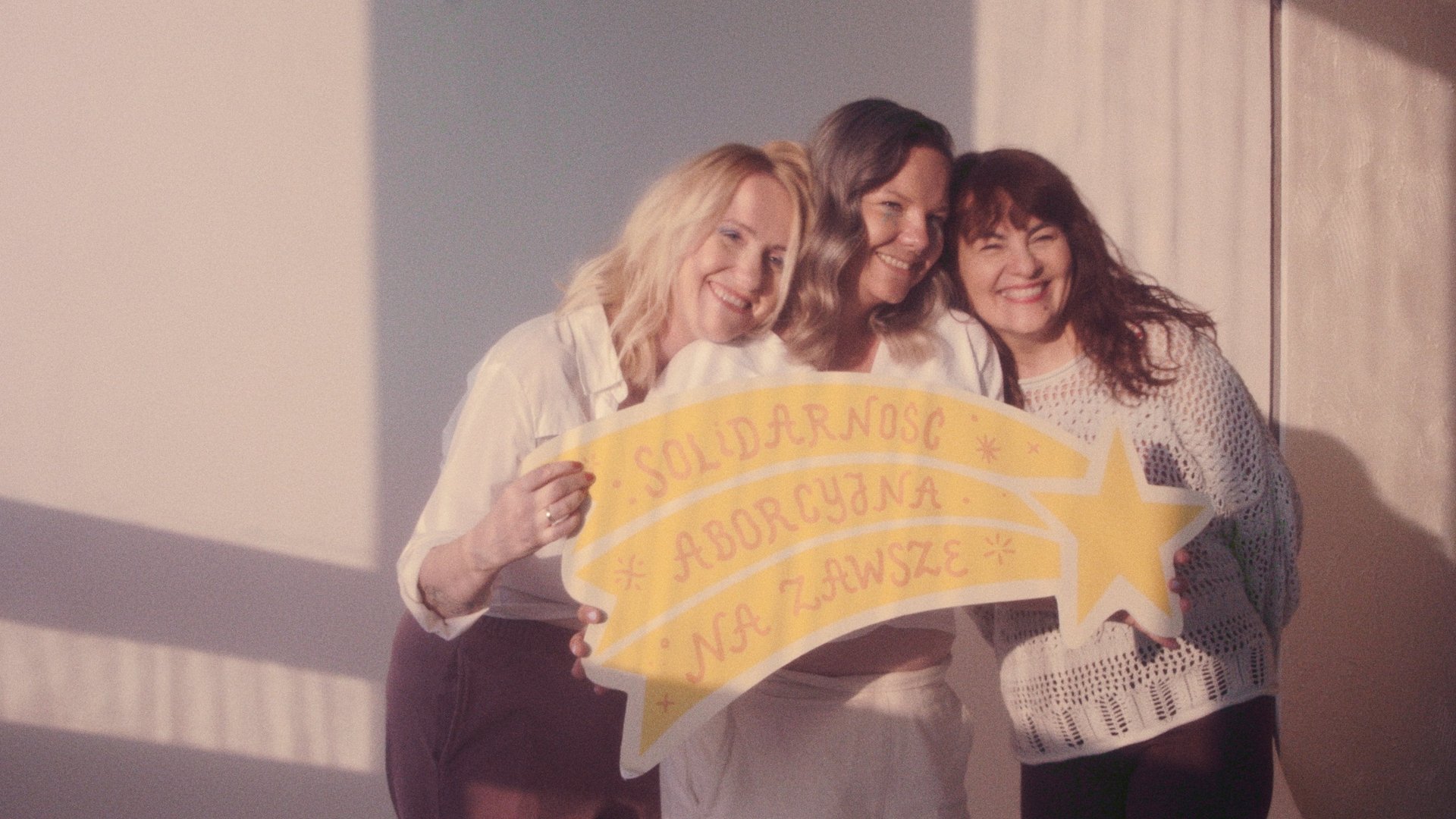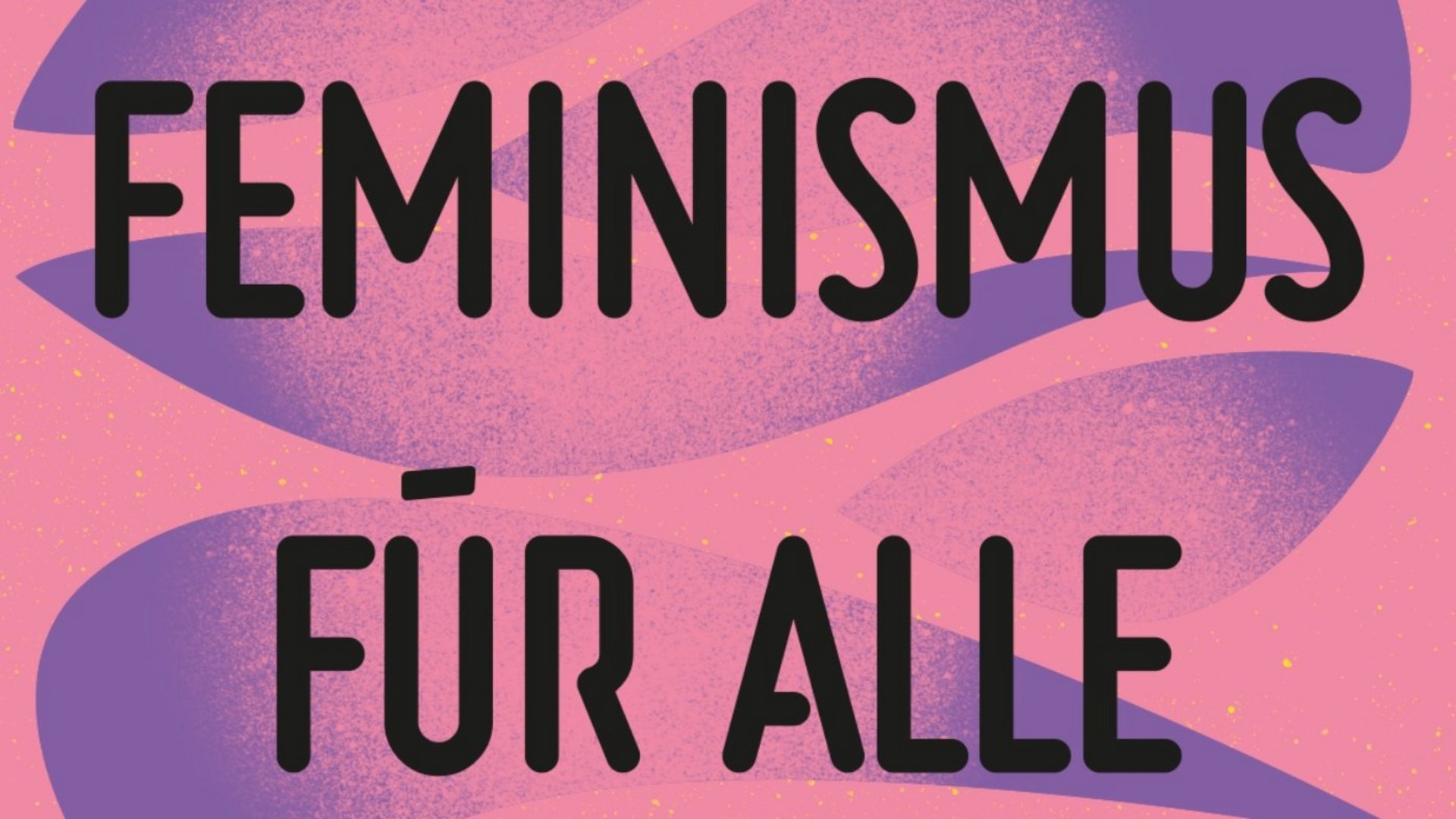
© Lila Podcast

© Lila Podcast
A gripping conversation with Katrin Rönicke on the fight for women’s rights, the complexities of abortion laws, and the role of digital media in shaping public discourse.
Katrin Rönicke is an author, journalist, podcaster, and a passionate advocate for feminism, gender equality, and social debates. The Lila Podcast, which she co-founded with Susanne Klingner in 2013, is considered one of the most important feminist podcasts in Germany. As part of this year's Dokumentale program, Rönicke, alongside other experts, will host a live podcast on the topic of abortion. Inspired by the film Abortion Dream Team, which will have its German at our festival, she will discuss the ongoing struggle for abortion legalization in Germany, global tensions and developments, and the right to self-determination.
We had the opportunity to speak with Katrin Rönicke for our Documentale Magazine about women’s rights, abortion legislation, and the role of media in these debates.
Katrin Rönicke: I joined the Green Youth when I was 18. Because of the women’s quota, which applies within the youth organization of Bündnis 90/Die Grünen, I quickly became a member of the state board in Baden-Württemberg and later joined the national board. As is the case with any youth organization, turnover is high, and new members are constantly joining. This led to recurring debates about abolishing the women’s quota, and as a board member, it was my responsibility to develop a stance on the issue. This is how I started delving more deeply into gender roles, which I hadn’t given much thought to before, growing up in a rural area.
It wasn’t a conscious decision at the beginning – it was simply the path that opened up to me. My first experiences as a writer were in the neon.de community (which no longer exists in its original form). You could write freely, and if the editorial team liked your piece, it might get featured on the frontpage. From there, I moved to the feminist blog ‘Mädchenmannschaft,’ where I blogged from 2008 alongside journalists Meredith Haaf, Susanne Klingner (who I still work with), and Barbara Streidl. In 2009, we won the Best of Blogs Award from Deutsche Welle, and that was when I started writing for established media outlets like ‘Der Freitag’ and ‘FAZ.’ Before that, feminism was not covered in mainstream media – we had to carve out our own niche. This worked so well that we continued doing things the way WE felt was right, as most male gatekeepers in established editorial offices weren’t offering us much of a chance, or when they did, they wanted us to conform to their expectations.


It’s a compromise that was only reached because the different factions with opposing ideologies couldn’t agree – and you can really feel that! The compromise is 30 years old, and since then, there has been complete political stagnation on the issue (except for the repeal of § 219a, thanks to the activism of Kristina Hänel). What this so-called compromise means for pregnant people is: abortion is generally illegal! This creates numerous hurdles, making it a real obstacle course for those who still want to have an abortion. There's immense time pressure, as everything must be done before the 12th week. But there’s also the obligation to receive counseling after confirming the pregnancy. What many don’t realize is that there are counseling services that offer support but don’t issue the required certificate for a legal, non-punishable abortion. Furthermore, it’s not always easy to secure a timely appointment for the procedure, and many doctors are not well-versed in medical abortion methods. In short, the legal situation puts tremendous pressure on people already dealing with a stressful situation. In my view, it’s harassment, it’s paternalistic towards pregnant people, and it contradicts international treaties like the CEDAW Women’s Rights Convention, as well as WHO recommendations, both of which call for the decriminalization of abortion.
I suspect religion plays a significant role. For some Christians, abortion is viewed as murder – completely disregarding the actual development of the fetus or whether it would be viable outside the womb. Then there’s the issue of gender equality within a society. In other words, the more patriarchal and misogynistic a society is, the stricter its abortion laws tend to be. We can currently observe this well in the United States: the country has made a sharp rightward turn, becoming more autocratic, and fundamentally more misogynistic and anti-feminist. The first thing to fall was Roe v. Wade, a landmark decision from 1973 that confirmed the constitutional right of a pregnant person to decide whether to continue or terminate their pregnancy. That was reversed before Donald Trump’s second term even began. In addition, far-right parties, such as the AfD, often link their nationalist and racist ideologies to controlling women’s reproductive rights. The idea is that society would need less immigration if white “bio-German” women had more children – and a liberal abortion law stands in the way of that! It’s a deeply misogynistic and racist ideology, but unfortunately, it’s gaining more traction.
Feminism itself has become more intersectional, meaning it now also adresses other forms of discrimination, such as classism, ableism, racism, or queerphobia. There have also been divisions within the movement, especially over whether transgender people should be included in feminism. The most well-known example is probably author J.K. Rowling, whose transphobic comments disappointed many Harry Potter fans. Here in Germany, figures like Alice Schwarzer have also been quite vocal about transphobic feminism. Before the Self-Determination Law was passed last year, these voices were particularly active online. Twitter and Facebook groups played a significant role. When we started feminist blogging in 2008 and then podcasting in 2013, we always said, ‘The internet is our big win!’ Thanks to the internet, feminists around the world can connect and unite – just think of the #Aufschrei or #MeToo movements! But now we see that the backlash is just as digitally connected. Twitter is now owned by a transphobe (Elon Musk), and hate and harassment dominate there more than the networks of progressive feminist groups. While I once felt that although the road to gender equality was tough, we were making progress, I now fear we are at the beginning of a massive backlash. I hope we can stay firm and defend the rights we’ve already won – and digital networking can still help. However, in the worst case, we’ll need to return to offline activism: take to the streets, pressure lawmakers, and create safe spaces.
I hope we can build alliances, become more supportive of one another, expect less perfection from our allies, be more tolerant of mistakes, and, above all, persist. That we don’t let ourselves be intimidated, that we remain loud, and that we don’t just defend what we’ve already achieved, but continue to push for more. If gender equality continues at this pace, it will take us more than 100 years in Germany, and almost 300 years worldwide! It’s easy to forget this when we think we must defend everything we’ve won against fascism, or when it’s tempting to think that we can’t demand more at the same time. But we can, and we should, because it’s one of many justice issues that remain unresolved. So, above all, I wish us perseverance and the strength to not let ourselves be intimidated.